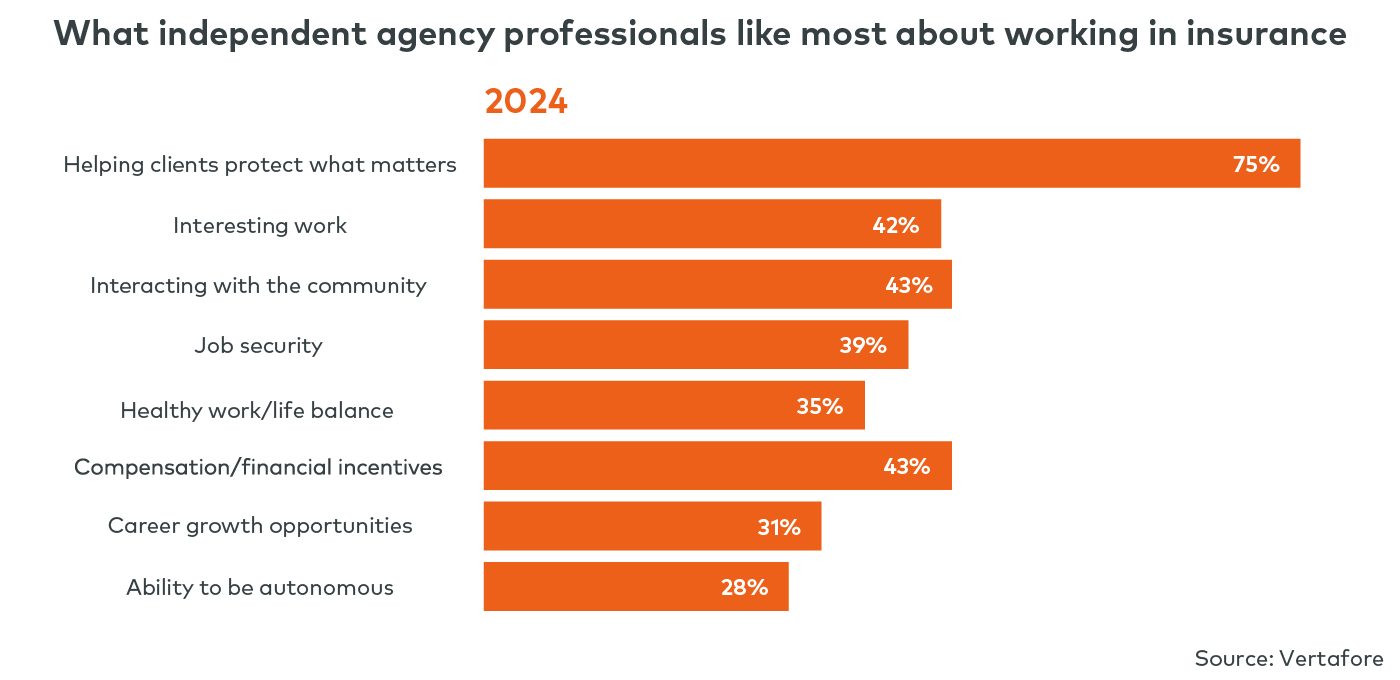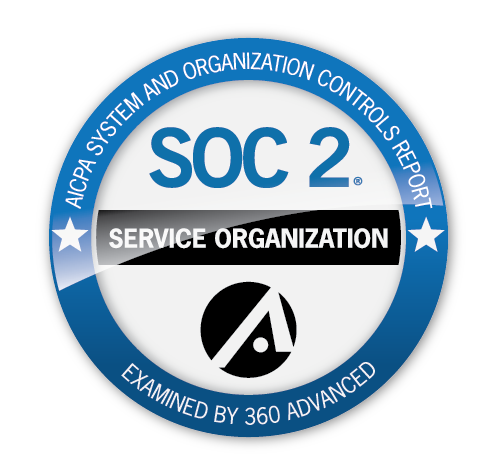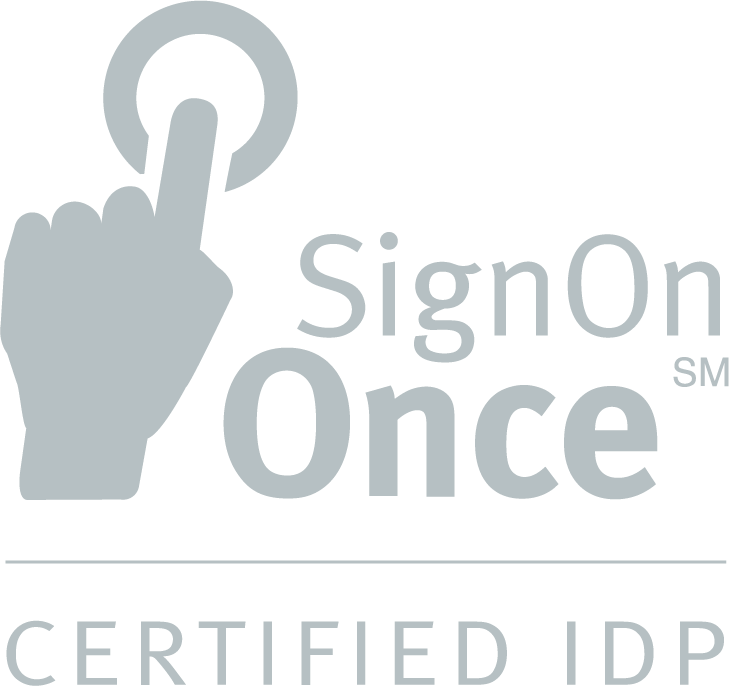For an agency hiring manager, today’s employment market is a lot. The insurance industry is expanding and creating more jobs, but finding qualified candidates to fill these new (and old) roles is challenging.
In Vertafore’s 2024 report on the state of the insurance workforce report, we asked about the hiring and retention challenges agencies face. We also asked why employees stay in their careers and what they love about their jobs. Their responses told a clear story of an industry that values far more than compensation.
For agencies looking for ways to attract and retain the best employees, here are three strategies to attract new talent that go beyond the paycheck.
Cultivate early-career insurance talent
Our survey respondents repeatedly suggested that agencies can attract new talent by putting more effort and energy into recruiting and supporting young and early-career professionals. Because agencies are great places to learn, develop, and launch a life-long career, they are ideal places for insurance caterpillars to become butterflies.
There are countless examples of agencies providing opportunities to amazing students and early-career professionals. Once novices are through the door, they can quickly become established talent. It’s a win for both sides.
To attract early-career insurance professionals, agencies are:
- Establishing internship programs with local colleges and universities builds a pipeline of possible insurance employee hires who know and understand the insurance industry and how to work in an agency. In these partnerships, students can plant their feet in a career that may become life-long, while agencies can develop new talent into solid employees.
- Providing mentorship opportunities by pairing experienced employees with recruits. A mentorship program shows an agency is committed to employees’ growth and development and models how to be successful. Mentorship programs also increase retention rates by creating a supportive and nurturing work environment that keeps employees on the payroll and performing well.
Prioritize work-life balance for agency professionals
In our survey, one in three respondents said having a healthy work/life balance was what they liked most about their insurance careers.
Work/life balance may be a business buzzword, but it shows that employees want ways to equalize the time they spend at and away from work, and independent agencies have a unique edge in this space. Many agencies can offer flexible work schedules, remote and work-from-home opportunities, and compressed work weeks and days to promote employees' healthy work and personal lives. For those juggling child or parent care, school schedules, or long commutes, having the ability to work outside of a stringent office 9 to 5 setting, agency careers are appealing and worth pursuing.
Furthermore, many independent agencies create flexible work arrangements to build a supportive environment. By championing work-life balance, independent agencies can attract and keep talent looking for a fulfilling career that supports a life outside of the workday.
Insurance professionals respond to the power of purpose
Helping clients protect what matters was the top answer for what professionals like most about their career—75% gave this response.
By telling the story of careers that help people, agencies can attract and retain talent who want to align with this good work. The story also includes developing deep and meaningful relationships with clients and the community. Agency professionals value this sense of purpose, service, and belonging, so emphasizing these aspects of the work benefits an agency’s employment efforts.
In addition, over 40% of our respondents said they most enjoy the interesting work they do as agency employees. Agencies serve an incredibly diverse range of clients, industries, businesses, and families, each offering its own challenges and needs. On any given day, an agency professional may manage customers, finances, business administration, continuing education, and risk management.
In an independent agency, no day is the same, and every day brings new challenges and opportunities. Again, using the fact that insurance work is both gratifying and interesting buoys an agency’s employment strategies.

The future of insurance talent lies beyond the paycheck
The difficult insurance employment market does not appear to be ending any time soon. Retiring employees, an expanding industry, and a lack of candidates will continue to make it difficult to fill open positions.
Increasing compensation is always a popular attraction and retention strategy, but writing a larger check isn’t always the best answer.
The path through the employment challenges leads to the softer factors that make jobs in an independent agency attractive. Turning the conversation to everything an agency career has to offer may be the best way to hire the next employee.
Read more about creating an internship at your agency at Invest.com.


